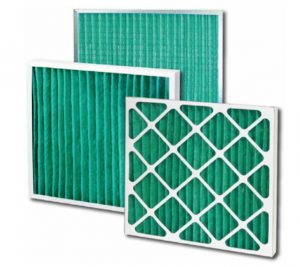Importance of Air Filtration
Indoor Air Quality
Most people spend on average up to 90 % of their life indoors. Not only at home, but in various places such as offices, schools, restaurants, shopping malls or cinemas. The exposure to air contaminants, from dust to spores, bacteria, viruses and chemical compounds has direct influence on people’s immune systems and can cause, from allergies to cancer or even an epidemic disease like COVID-19.
Having a clean healthy air indoors is crucial for the health of the population as a whole and vulnerable groups such as babies, children or elderly people.
It is a necessity not only to avoid the direct spread of a virus, but to support people’s immune systems to withstand serious impacts by an aggressive disease.


Classification of air particles
The common technical classification of fine dust fractions is also based on the classification of particle sizes according to the areas they are deposited in the human respiratory system. The classes are PM10 (particles with an aerodynamic diameter of ‹ 10 μm), PM2.5 (‹ 2.5 μm) and PM1 (‹ 1 μm).
Importance of air filters
Controlled air quality is necessary today more than ever. Air filters ensure healthy indoor air by removing harmful fine dust including pollen, bacteria, yeast and moulds along with other organic and inorganic material. Air filters also serve to keep the air handling equipment itself clean and efficient.
Air purity requirements are continuously increasing. At the same time, the need to reduce energy consumption and carbon dioxide emissions is increasing, along with the pressure on costs. Thus, buildings are more and more restricted from natural ventilation making Energy-efficient mechanical ventilation with air filtration solutions more important than ever before.
Task of air filtration
The aim of using air filters is to protect people’s health by maintaining a good hygiene level in the ventilation system and clean indoor air quality (IAQ).
The urban air quality is nowadays polluted by small PM1 particles and gases coming from combustion and diesel engines, which city centres are crowded with. Additionally, for hygiene reasons, bacterial and fungal spores must be removed from the air stream, which are typically in a size range between 1 and 10 μm. Therefore, for the human health and indoor hygiene, it is important to clean the inlet air with sufficient air filters. The most common air filters in comfort ventilation are ePM1, ePM2,5 and ePM10. ePM1 is recommended in buildings such as schools, hospitals, office buildings, apartments, and residential facilities.



